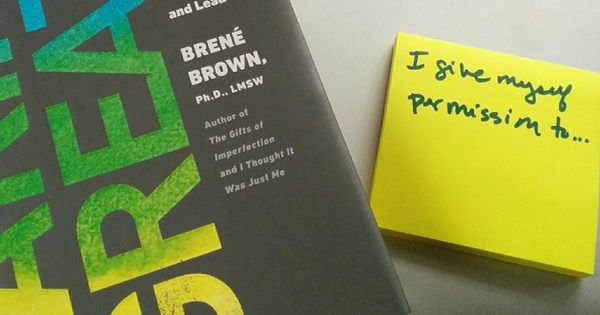“Listen, are you breathing just a little, and calling it a life?” – Mary Oliver
Self-care: does that term make you gag, roll your eyes, and want to just click away from this article?
Do you think: honestly, what more could be possibly said on this topic?
You’ve read the articles, downloaded the apps; you know all the things you’re “supposed” to do.
And yet you’re probably thinking: Really? Like I really need to hear some more stupid advice on how to get to the gym between work, carting kids around, walking the dog, making dinner and everything else I’ve got to do?
I get it. Really, I do. Hear me out.
Why we cringe at the term self-care
The term ‘self-care’ can feel indulgent, ridiculous, and frankly fairly irrelevant, particularly for do-gooding, high-achiever types like you.
I get those beliefs, because I struggle with them myself.
Because despite the fact that I’m a huge advocate for the importance of self-care for leaders (the data supporting the importance of it is all true, folks), I’m going to let you in on a little secret: I’m actually pretty terrible at prioritizing my own self-care.
Growing up being raised by a single Mom, “self-care” wasn’t much in the vocabulary in my family home. Hard work, buckling down, and shouldering through were strong expectations and values, and were typically rewarded in some way.
But I also saw and learned the consequences of putting one’s own needs last, ignoring one’s health, and the crushing power of addictions when my Mom was diagnosed with cancer at age 55, and died at age 62.
So, both as a professional coach who works on self-care with clients, and as an evolving human with a career, spouse and family myself, I’ve been slowly learning over the past 25 years or so about the value and practice of taking care of ourselves at multiple levels – physically, mentally, emotionally, and spiritually.
Tales from a day off
Here’s a story for you: a few months ago, after a work trip that was planned canceled out at the last minute, I decided to give myself one of the two days I had blocked off for the trip completely off.
This was a big deal, let me tell you.
Running my own executive, leadership, and team coaching business, I’m responsible for things running around here – or not. And while I am lucky and happy to work with a fabulous assistant, the ultimate responsibility for my success or failure is mine.
And while I have systems and processes and people to help me and a cell phone, it still makes me at least a little bit nervous to take time off, even though I’m hardly running any type of emergency service over here.
It’s just a day, I told myself. And you can afford the time.
Plus you’re so tired, I continued with my inner dialogue. This schedule you’ve been keeping has meant you’ve pushed the envelope on what you can reasonably do. You think no one notices but they do.
And this voice of my inner champion was right: my fatigue meant that mundane tasks were taking longer. I wasn’t having the energy for the bigger work, the longer term visioning. And I was honestly glad and relieved that the work trip had canceled, as interesting as the work was going to be.
It hit me: that’s simply not me at my best. What I realized was that not taking care of myself meant that I wasn’t fully honoring my own values of service, contribution, impact, and quality.
So, I bravely (ahem!) took the day off: armed with my journal, I relished my time in the flower conservatory, took myself out to lunch, and had a massage. (Heaven.)
And went back to my work the next day with a renewed sense of purpose, drive, and goals.
Setting a new normal
So, what does this have to do with you? Am I suggesting you also have to take a day off too in order to get a grip?
Not necessarily – I offer my experience as one example of how we might offer some basic kindness to ourselves.
What I want you to know is that while I’ve been learning the importance of taking care of myself, it’s still not my default mode. I have to focus and work at it. Every single day.
Will I take my walk in the morning? Will I carve out 10 minutes for meditation? Will I ask for help?
Or not?
These seem like simple choices, but they matter – both when I choose what I know from experience is nourishing and life-giving for me, and when I deny myself these tools.
It’s remarkably easy not to do what I know in my bones is good for me.
It’s also remarkably nourishing when I do follow through.
And there’s truly almost no better feeling than when I follow my own program of self-care that I’ve devised from lots of experimentation, failure, and persistence.
The proof is not only in my health, but also in my effectiveness in my work and with my family, the three things that matter the most to me.
Because frankly, if I don’t take care of myself, I can’t do well what I most want to do, at the best of my abilities.
And as I practice the skills of self-care, it sets a new normal both in what I am able to do for myself and what I can bring forward into the world.
What I know is that these principles are true for you too.
How to take care of yourself even if the term “self-care’ makes you want to barf
1. Remember you are your own most precious resource. If you don’t take care of yourself, you can’t do the work you were put here to do.
2. Trust your experience and your instincts. What does ‘self-care’ actually mean to you? What do you do when you are taking care of yourself? What do you want it to look like if you were reliably taking care of yourself? Throw out the manuals, guides, and books, and examine your own experience. You actually know what’s workable and best for you.
3. Ditch the shame and fire the inner critic. Whatever you’ve tried before that didn’t work? That’s just data and information for you, not a judgment of you. You hate step-aerobics? Awesome. Then it’s not going to be part of your self-care plan. Examine your own experience to identify activities and behaviors that predictably nourish you in body, mind, and spirit, and do those things.
4. Create healthy goals and boundaries. In addition to what you will do to take care of yourself, what *won’t* you be doing? Setting boundaries (e.g., no caffeine after 1pm, turning off screens at 7pm) can be just if not more important and powerful as setting up proactive plans for self-care.
Your Turn
In the Comments below, let me hear from you! What helps you take care of yourself, so that you can do the big work you’re meant to do? What supports your take action on your own behalf?
Loved this post?
Then use the icons below to tweet it, share it on Facebook and send it to specific friends via email.
Editor’s note: This post was originally published in May 2016 and has been updated for content and relevancy.
Photo credit: Hanna Cooper




 Before specializing as a professional coach in 2004, I spent more than a decade in leadership, management and program development for state and local government and non-profit organizations. Now I get to help leaders and teams have more clarity and ability to stand up for what's important in their work and in their organizations. Working with me, leaders and teams find more meaning and purpose, feel happier and more confident, navigate change and conflict, and work together better.
Before specializing as a professional coach in 2004, I spent more than a decade in leadership, management and program development for state and local government and non-profit organizations. Now I get to help leaders and teams have more clarity and ability to stand up for what's important in their work and in their organizations. Working with me, leaders and teams find more meaning and purpose, feel happier and more confident, navigate change and conflict, and work together better.